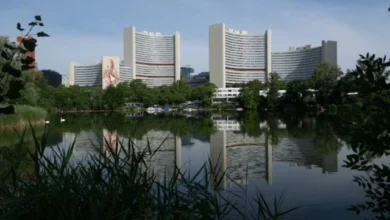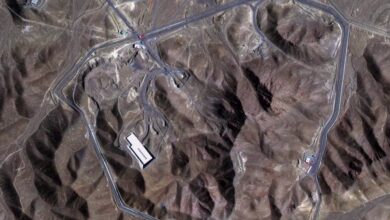After seven blistered weeks, more than 930km of desert terrain, and the company of two camels named Lulu and Juicy, British adventurer Alice Morrison has completed the first stage of what may be the most ambitious trek of her life: Walking the full length of Saudi Arabia from north to south.
With the Hajj season now complete and pilgrims dispersing from the holy cities, Morrison’s parallel journey, quieter, slower and laced with both pain and revelation, has inspired audiences in Saudi Arabia and beyond.
The expedition, which began in March near Jordan’s border, has taken her through ancient Nabataean ruins, remote mountain passes, and the shifting sand seas of the Arabian interior.
Along the way, she has uncovered Bronze Age relics, walked with Saudi Arabia’s first female wildlife rangers, and documented the fast-changing social and environmental landscape of the Kingdom.
Most rewarding
“This is one of the hardest but most rewarding journeys I’ve ever done,” Morrison said from AlUla, where she ended her first leg. “We’re walking a half-marathon each day, while also filming, interviewing, and wrangling camels. It’s exhausting, but I feel so alive.”
Known for her work on BBC’s Arabian Adventures and her previous expeditions across Africa and the Middle East, Morrison is no stranger to endurance. But this walk, which will resume in October for its final 1,300-kilometre stretch to the southern border, is different. It’s a kind of pilgrimage, she says, not only across a country but through history, culture, and change.
Alongside her were her animal companions and a small crew, including Saudi guides and camel handlers. They slept under the stars, bathed in wadis, and lived, she said, “at the speed of the land.”
Gender and tradition
Morrison, who speaks fluent Arabic and studied Middle Eastern languages at the University of Edinburgh, sees her journey as a way to challenge global perceptions of Saudi Arabia, particularly around gender and tradition.
“I’ve walked with women leading conservation projects, managing camels, doing archaeological work,” she said. “They’re changing things from within and they’re proud of it.”
Among her most moving encounters was with female wildlife rangers in Wadi Al Disah, who spoke candidly about breaking barriers in male-dominated fields. “At first, they said it felt strange. Now it feels normal. That’s progress,” she said.
Discoveries
The team’s discoveries have included 4,000-year-old rock carvings, pieces of the old Hejaz railway, abandoned in the desert like history’s breadcrumbs. In one memorable moment, an archaeologist found what appeared to be a shift schedule carved in stone “an ancient timesheet,” Morrison said.
But the expedition has not been without hardship. On the first day, she developed severe blisters. “I was in agony for three weeks,” she admitted. “But you learn to manage the pain. You keep walking.”
Her previous journeys include cycling from Cairo to Cape Town, walking the length of Jordan, and trekking with Amazigh nomads across Morocco’s Atlas Mountains. Each journey, she says, is a lesson in humility and endurance.
She’s also raised attention and money for environmental and educational initiatives along the way, and has used her growing digital audience to tell daily stories from the road.
“Walking through a place gives you access to it,” she said. “You’re not just seeing it you’re part of it.”
Stage Two of the walk begins in October from Medina. She expects it to take another two months.
As for what drives her? “I only have one life,” she said. “And I want to live it fully. These journeys make me grow. They show me, and hopefully others, what’s possible when you just begin.”







